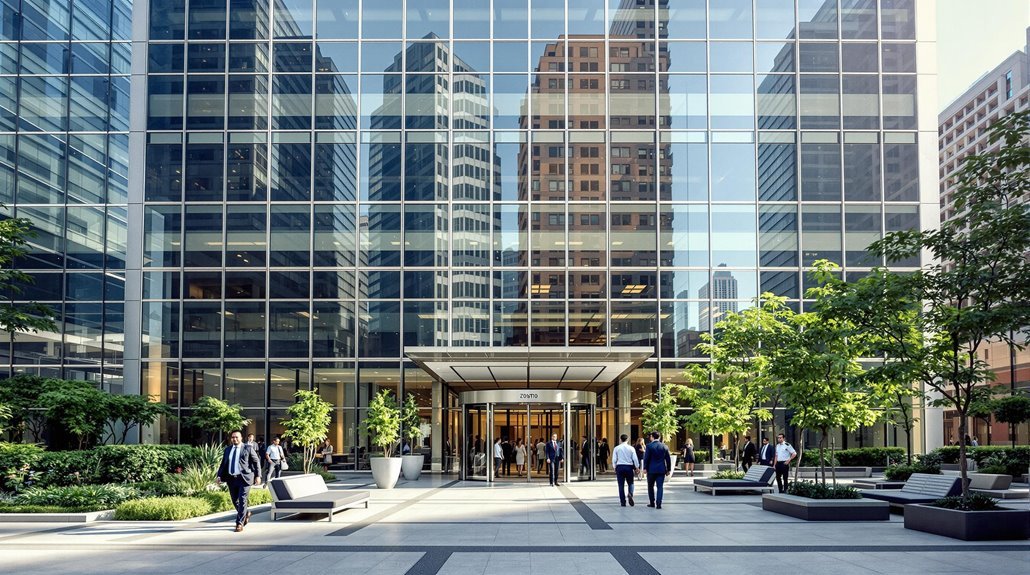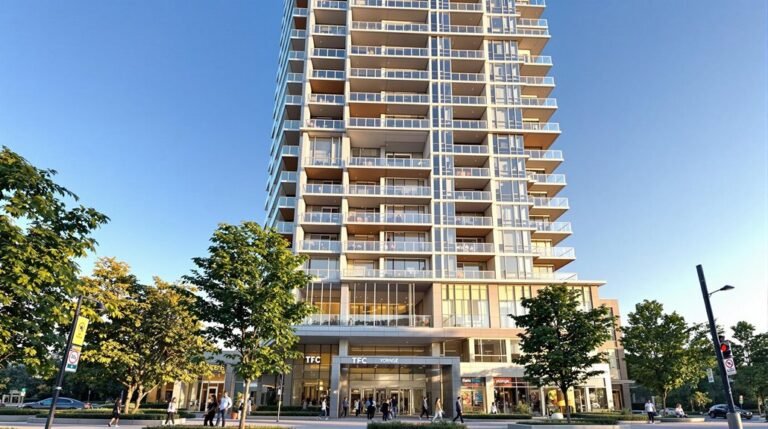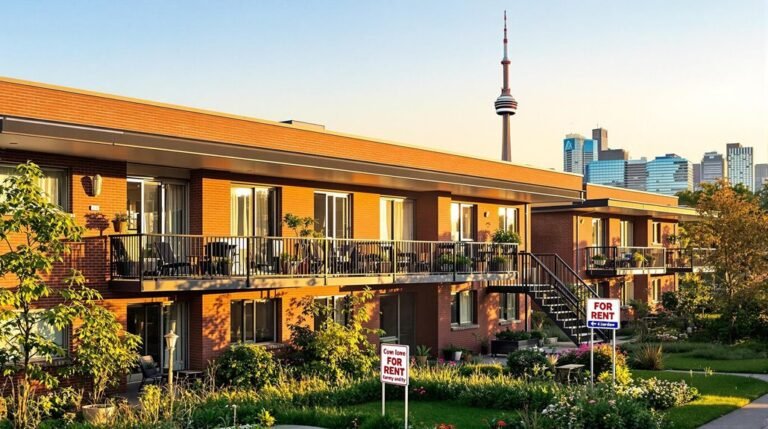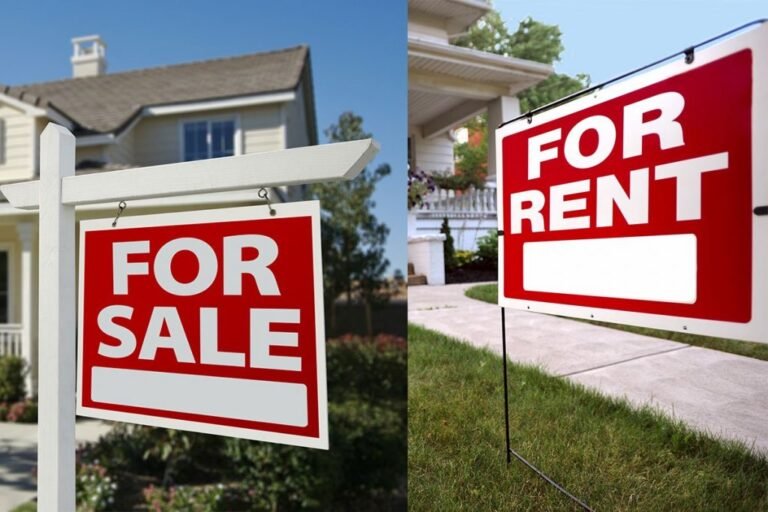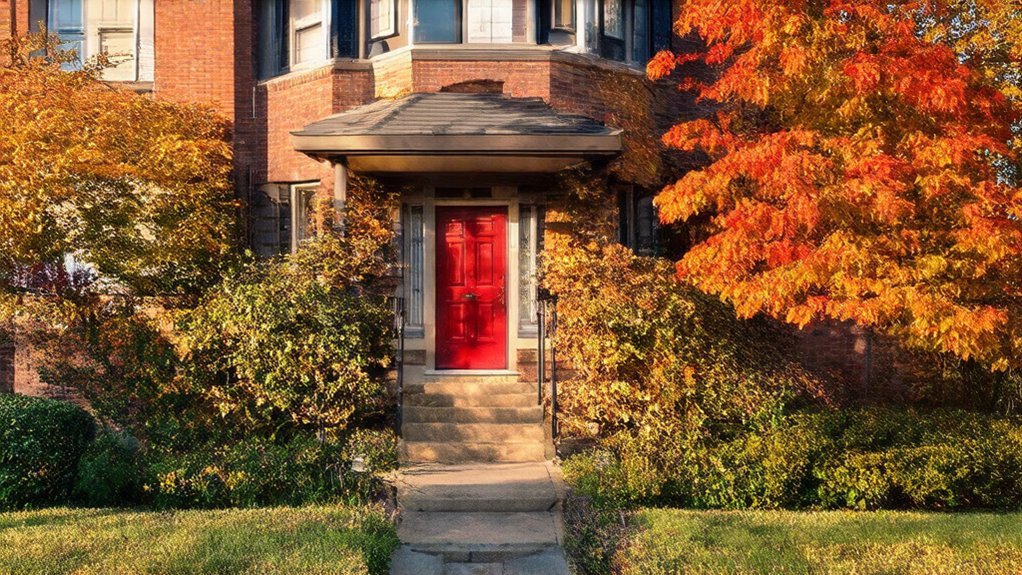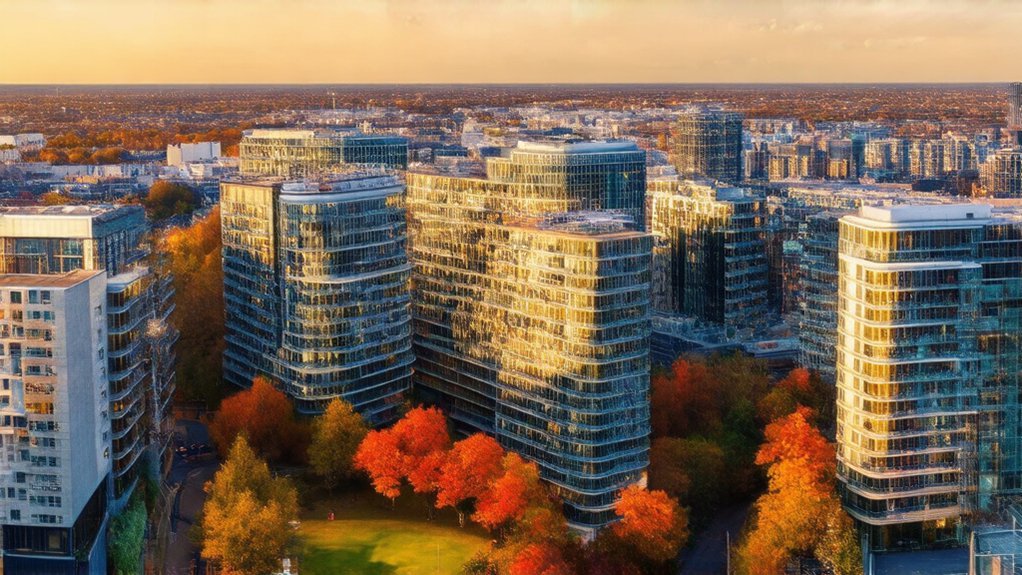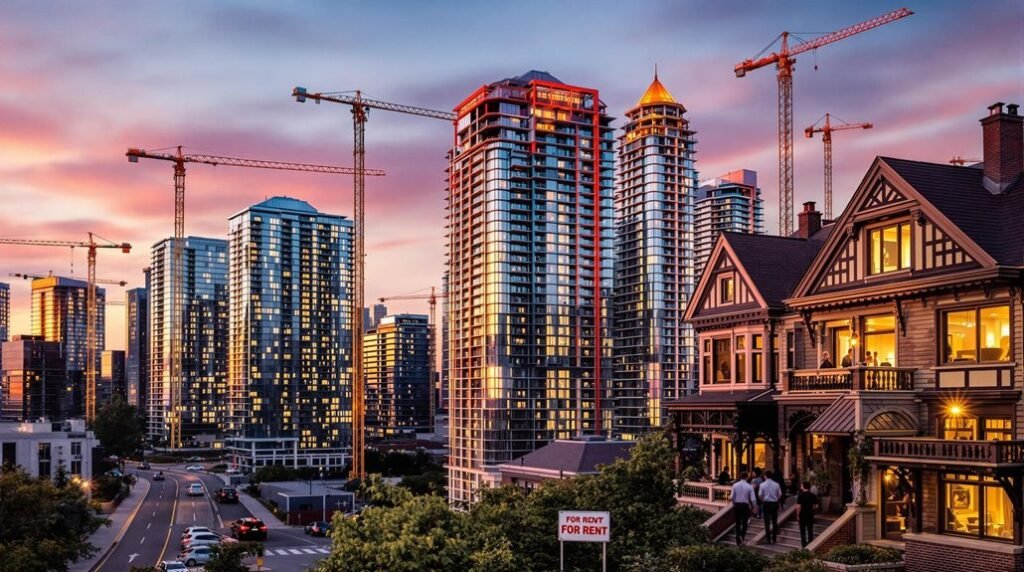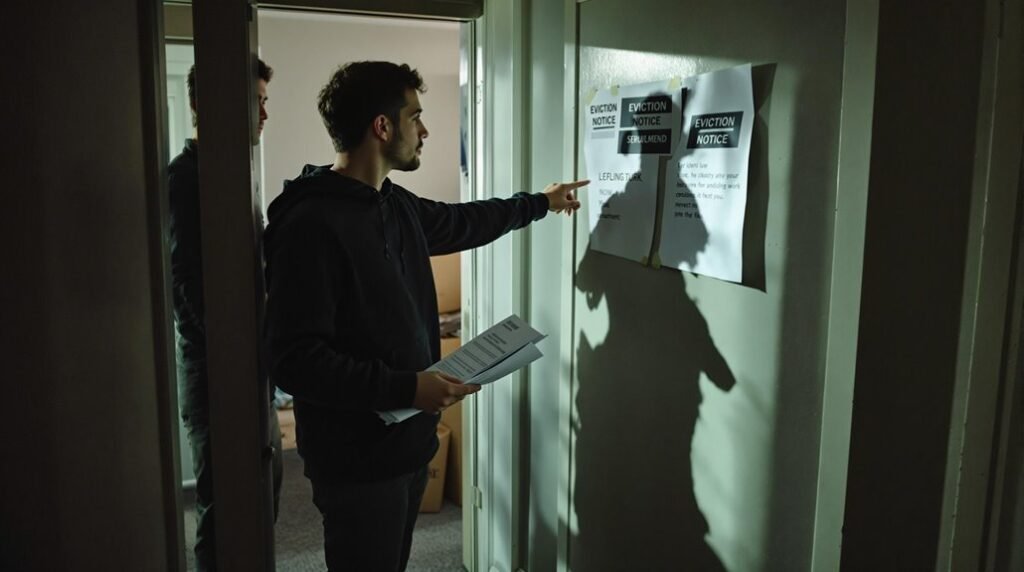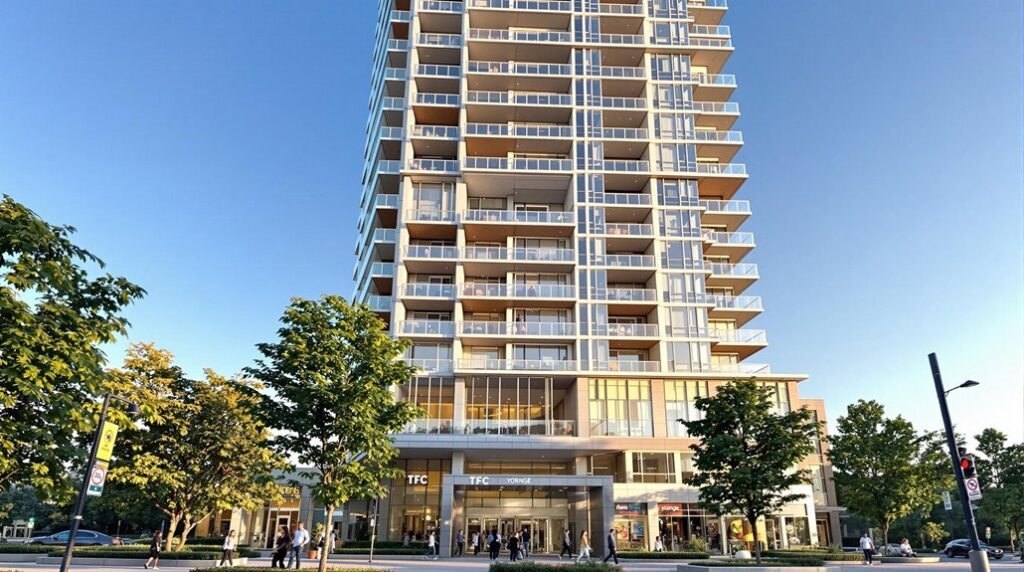Property managers serve as the vital link between Toronto landlords and tenants. They’ll handle your maintenance requests, collect rent payments, and guarantee building safety protocols. When choosing a management company, you’ll want to verify their licensing, check online reviews, and examine their tenant screening processes. You have specific rights under Ontario’s Residential Tenancies Act, including protection from unfair rent increases and requirements for proper notice before unit entry. Understanding move-in procedures, maintenance protocols, and security measures will help you navigate your rental experience successfully. This guide offers essential insights to make your tenancy experience smoother.
Key Takeaways
- Research property management companies’ reputation through online reviews and verify their Ontario real estate licenses before signing any agreements.
- Expect management fees between 6-10% of rental income, covering services like maintenance coordination, rent collection, and tenant communication.
- Submit maintenance requests in writing and expect responses within 24 hours for urgent issues or seven days for non-urgent matters.
- Ensure you receive proper documentation for security deposits (maximum one month’s rent) and written notices for any unit inspections.
- Schedule formal move-in and move-out inspections, documenting unit conditions with photos and completing a Property Condition Report.
What Property Managers Do
Toronto’s property managers serve as the essential link between property owners and tenants while handling an extensive range of responsibilities.
You’ll find them coordinating multiple aspects of property operations to guarantee everything runs smoothly.
Similar to condo managers, they must demonstrate integrity and professionalism in all their dealings.
Property managers must have strong marketing expertise to effectively advertise and fill vacant properties.
These professionals typically charge management fees ranging from 6-10% of rental income.
Property managers handle four main areas of responsibility:
- Communication and Tenant Relations
- They’ll respond to your inquiries and complaints
- They maintain open dialogue between you and property owners
- They work to resolve any disputes that arise
- They guarantee clear communication with all parties involved
- Property Maintenance
- They coordinate regular maintenance schedules
- They respond to emergency repair needs
- They conduct property inspections
- They work with trusted contractors for repairs
- They schedule seasonal maintenance checks
- Financial Operations
- They collect your rent payments
- They manage property budgets
- They maintain detailed financial records
- They review rental rates against market values
- They handle all property-related payments
- Administrative and Compliance Tasks
- They guarantee the property follows all laws
- They manage service contracts
- They keep detailed records of expenses
- They handle property-related meetings
- They maintain emergency plans
- They monitor insurance coverage
You’ll interact with property managers regularly throughout your tenancy.
They’re responsible for keeping your living space safe and well-maintained while protecting the owner’s investment.
When you need repairs or have concerns they’re your first point of contact.
They’ll guarantee your needs are addressed while maintaining professional standards and legal compliance.
Finding the Right Management Company

Selecting the right property management company requires careful evaluation of several key factors. You’ll want to focus on their experience, qualifications, reputation, and service offerings to make an informed decision. A thorough assessment will help guarantee you choose a company that can effectively manage your property. With housing demand trends showing consistent growth in North York, choosing the right management company is more critical than ever.
When evaluating potential property management companies in Toronto, consider these essential elements:
- Experience and Expertise
- Look for companies with proven experience managing properties similar to yours
- Check how long they’ve been operating in Toronto
- Evaluate their track record in handling tenant relationships
- Review their property managers’ qualifications
- Licensing and Professional Standing
- Verify they hold required real estate licenses
- Check their memberships in property management associations
- Confirm they comply with Ontario regulations
- Review any specialized certifications they possess
- Company Reputation
- Research online reviews and ratings
- Ask for references from current clients
- Assess their response time to inquiries
- Review their history of tenant satisfaction
- Service Capabilities
- Examine their tenant screening process
- Review their maintenance and emergency response procedures
- Evaluate their financial reporting systems
- Check their property inspection protocols
You’ll want to schedule meetings with several companies to discuss their services in detail. During these meetings, pay attention to their communication style and willingness to answer questions. Property management companies must complete mandatory training within six months of joining a condo board. Ensure they understand that they cannot request post-dated cheques from tenants as per Ontario regulations.
A reliable property management company should demonstrate transparency about their processes and fees while showing a clear understanding of local market conditions.
Lease Terms and Agreements
After finding the right property management company, understanding lease terms and agreements becomes your next major focus. You’ll need to decide between two main types of leases: fixed-term or periodic. A fixed-term lease locks you into a specific timeframe while a periodic lease operates month-to-month. Written lease agreements provide stronger legal protection than verbal arrangements. In Ontario, landlords must use the standard lease form for most residential tenancy agreements signed after March 1, 2021. Rent deposits are strictly limited to one month’s rent under Ontario law.
Your lease agreement will contain several essential elements you must review carefully:
- Personal information including your legal name and contact details
- Property description with the complete address
- Rent amount and payment terms including late fees
- Security deposit requirements and return conditions
- Maintenance responsibilities for both you and the landlord
You’ll also want to pay attention to these important terms:
- Move-in and move-out dates
- Utility responsibilities and payment obligations
- Future rent increase provisions
- Rules about subletting
- Special conditions regarding pets and smoking
Remember these key points about lease modifications and termination:
- Changes to your lease must be in writing with signatures from both parties
- You must provide 60 days’ written notice before moving out
- Fixed-term leases can convert to month-to-month arrangements
- Your security deposit may become your final rent payment
- Key deposits can’t exceed replacement costs
Understanding these terms will help protect your rights as a tenant. Make sure you read every section of your lease carefully before signing. Keep a copy for your records and refer to it whenever questions arise about your tenancy obligations.
Understanding Your Tenant Rights

In accordance with Ontario’s Residential Tenancies Act (RTA), you have specific rights that protect your interests as a tenant. These rights guarantee you’ll have a safe living environment and fair treatment throughout your tenancy. Understanding your rights helps you maintain a good relationship with your landlord while protecting your interests. Building trust and compliance leads to longer tenancies. Working with licensed real estate agents can help ensure your rights are protected throughout your tenancy.
Your financial rights include strict regulations on security deposits and rent increases. Your landlord can’t charge more than one month’s rent as a deposit. They must provide you with a written receipt. Rent increases are limited to once every 12 months. You can dispute any increases that exceed the allowable limit.
- You have the right to live in a well-maintained home. Your landlord must keep the property’s structure, plumbing, heating, and electrical systems in good working order.
- Your privacy is protected by law. Landlords must give you 24 hours’ notice before entering your unit except in emergencies.
- You’re entitled to “quiet enjoyment” of your rental unit without unnecessary disturbance from your landlord.
- You can’t be evicted without proper cause and due process through the Landlord and Tenant Board.
If your landlord isn’t meeting their obligations, you can seek resolution through the Landlord and Tenant Board. Protecting yourself with tenant insurance can provide additional security against theft and damage. They’ll need to follow proper procedures for any actions affecting your tenancy.
You don’t have to accept unsafe living conditions or violations of your privacy. The RTA provides you with clear pathways to address concerns while maintaining your tenancy rights.
Maintenance Request Procedures
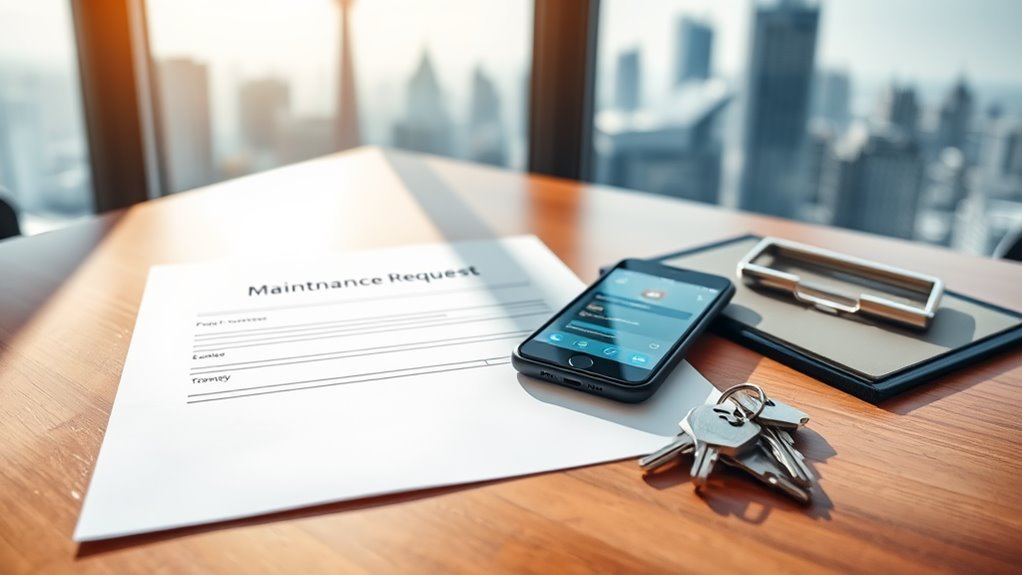
Proper maintenance request procedures help you exercise your tenant rights effectively and maintain a well-functioning living space. Following these steps will guarantee your maintenance concerns are addressed properly and in a timely manner. Property inspections are regularly conducted to identify potential issues before they become serious problems.
Start by reviewing your lease agreement to understand the specific maintenance request process for your building. Document your maintenance issue thoroughly with photos and videos. You’ll need to submit your request in writing through your building’s preferred method. This could be an online portal, email, or a specific form like RentSafeTO. Keep copies of all documentation for your records. A team of reliable contractors is available 24/7 to address maintenance issues promptly. With average rents at $2,000 for a one-bedroom apartment, maintaining your rental unit in good condition is essential for both comfort and value.
Your landlord must respond within specific timeframes:
- Urgent requests require a response within 24 hours
- Non-urgent requests need attention within seven days
- You should receive a timeline for completing the repairs
- The landlord must inform you about repair scheduling
If you don’t receive a response, take these follow-up actions:
- Send a written reminder referencing your initial request
- Document all communication attempts
- Contact your property management company directly
- Keep track of response times and repair progress
When maintenance issues remain unresolved, you have several options for enforcement:
- Contact Toronto’s municipal government
- File a T6 form with the Landlord and Tenant Board
- Request property standards inspections
- Seek rent abatement through proper channels
- Use Navigate Tribunals Ontario for guidance
Always maintain professional communication and follow proper procedures to protect your rights as a tenant.
Rent Payment Options

Toronto property management companies offer multiple rent payment methods to accommodate diverse tenant preferences and needs. You’ll find traditional options like cheques and money orders alongside modern digital solutions. Pre-authorized debit stands out as a convenient choice that automatically processes your payment on the first of each month. Landlords must provide rent receipts upon request.
The most common payment methods include:
- Traditional Methods: Write cheques with your tenant account number or use money orders dropped off at designated locations. Post-dated cheques are acceptable but not mandatory. Tenant Support Centre representatives are available 24/7 to assist with payment questions.
- Online Banking: Set up your landlord as a payee through your bank’s online system or use telebanking services for direct payments.
- Pre-Authorized Debit: Submit a completed PAD form to your operating unit office at least 3-5 business days before the first of the month for automatic withdrawals.
- Alternative Solutions: Use third-party services like Chexy to pay rent with credit cards and build your credit score through Equifax reporting.
You’ll need to take into account processing times when choosing your payment method. Mail-in payments require extra time for delivery. Drop boxes at superintendent offices provide a quick solution for cheques and money orders.
Remember that cash payments aren’t typically accepted due to receipt requirements.
Watch out for insufficient funds fees from both your bank and landlord if your payment doesn’t clear. Most property management companies won’t accept direct credit card payments but third-party services can bridge this gap.
Choose the method that best fits your financial habits while ensuring timely rent payments.
Security and Safety Protocols
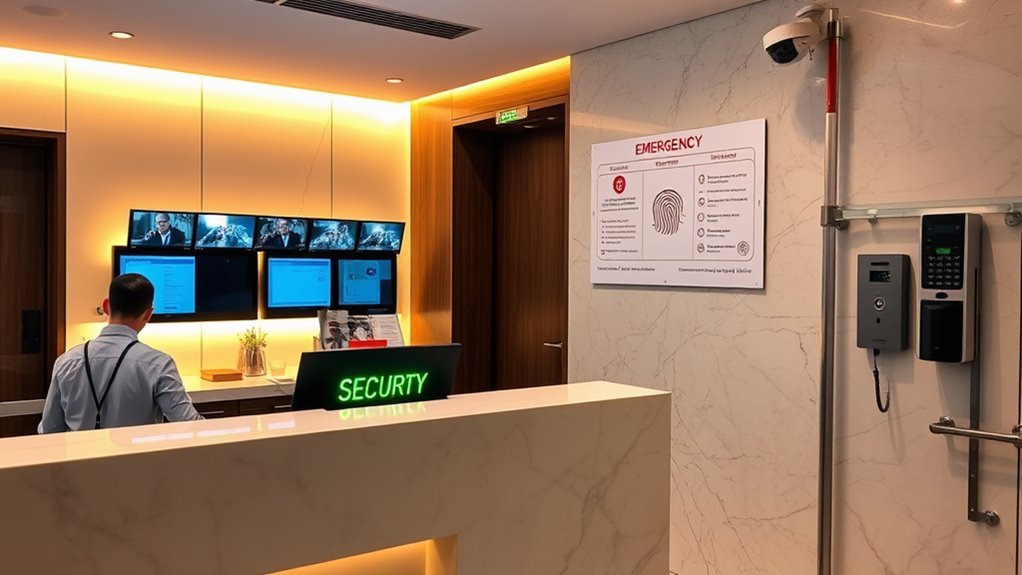
Beyond ensuring smooth rent payments, security measures form the backbone of any well-managed property. You’ll find Toronto property management companies implement extensive security protocols to keep you safe in your home. These measures protect both residents and property through multiple layers of security. Regular security training sessions help residents understand and follow safety procedures effectively. Research shows that proper security significantly increases property values and resident satisfaction. Similar to Toronto’s historic brick foundations, modern buildings prioritize structural integrity and safety in their design.
Your safety begins with controlled access systems. You’ll receive secure entry methods like keycards, fobs, or mobile app access for entering the building and accessing amenities. These systems limit entry to authorized residents and registered visitors only.
Modern surveillance systems watch over the property 24/7. High-resolution cameras monitor all entrances, exits, and common areas. This extensive coverage helps detect and prevent security issues before they escalate.
Property managers maintain excellent visibility through strategic lighting placement. You’ll find:
- Bright lighting at all building entrances
- Well-lit parking areas and walkways
- Motion-activated lights in less-traveled areas
- Consistently illuminated hallways and stairwells
Professional security personnel play an essential role in your safety. They:
- Monitor access points throughout the day
- Conduct regular property patrols
- Manage visitor registration systems
- Respond quickly to security concerns
Your property management company regularly updates these security measures. They conduct system tests, maintain equipment, and upgrade technology when needed.
You’ll need to follow security protocols like registering guests and reporting suspicious activity. These procedures help maintain a secure living environment for all residents.
Moving In and Out

Managing your move in Toronto requires careful attention to three key phases: preparation, execution, and documentation. You’ll need to complete several essential steps before receiving your keys and settling into your new home.
When moving in, you must first gather your required documents. These include proof of tenant’s insurance, completed Pre-Authorized Payment forms, and utility account confirmations. You’ll also need to schedule a formal move-in inspection with your property manager to document the unit’s condition and review important lease terms. Popular insurance providers like SquareOne and Sonnet offer comprehensive coverage for renters. Using a detailed Property Condition Report will help ensure accurate documentation of any existing damage or issues. Well-organized documentation can help you maintain financial predictability and avoid unexpected costs during your tenancy.
For a smooth moving process, follow these critical steps:
- Submit all required paperwork including your contact information and payment authorization at least two weeks before your move.
- Schedule your move-in inspection and complete the Move In Condition Report with photos and signatures.
- Set up your utilities and confirm your insurance coverage is active before your move-in date.
- Register with building management and obtain necessary access cards or keys.
When it’s time to move out, you’ll need to provide at least 60 days’ written notice using the proper forms. Make sure you leave the unit in clean condition by repairing any wall damage, replacing burnt-out bulbs, and deep cleaning all surfaces.
Don’t forget to schedule your move-out inspection and return all keys. Remember to close your utility accounts on your last day and keep documentation of the closure.
A successful move depends on following these protocols and maintaining clear communication with your property management company throughout the process.
Property Rules and Regulations

Once you’ve completed your move-in process, you’ll need to understand and follow your property’s specific rules and regulations. Your rental agreement outlines these terms in detail.
It’s essential to review this document carefully as it establishes your rights and responsibilities as a tenant. Royal York Property Management provides expert guidance to help tenants understand their obligations.
In today’s market, credit score checks are standard practice before approving new tenants.
Property rules typically address several key areas:
- Rental Payments and Increases
- You’ll need to pay rent as specified in your agreement
- Your landlord can only raise rent once every 12 months
- You must receive proper notice before any rent increase
- You can challenge increases that exceed legal limits
- Maintenance Responsibilities
- Keep your unit clean and tidy
- Report maintenance issues promptly
- Your landlord must handle major repairs
- All systems must meet safety standards
- Privacy and Access Rules
- Your landlord needs to give notice before entering
- Emergency situations are the only exception
- You have the right to peaceful enjoyment
- Unauthorized entry isn’t permitted
- Property Maintenance Standards
- Your unit must meet health and safety requirements
- The landlord must maintain common areas
- Building systems need regular upkeep
- You’re responsible for minor maintenance
If you plan to sublet your unit for short stays, remember that Toronto allows a maximum of 180 nights per year for entire home rentals.
Understanding these regulations protects both you and your landlord.
If you notice violations, you can seek help through the Landlord and Tenant Board.
Keep records of all communications about rules and maintenance requests.
You’ll find that following these guidelines helps create a positive rental experience and maintains a good relationship with your property management company.
Conclusion
You’ll find that working with Toronto property management companies requires understanding your rights and responsibilities as a tenant. Keep all documentation organized and maintain open communication with your property manager. Know the proper procedures for maintenance requests and rent payments. Following the guidelines in this guide will help you have a smoother rental experience and protect your interests throughout your tenancy.


